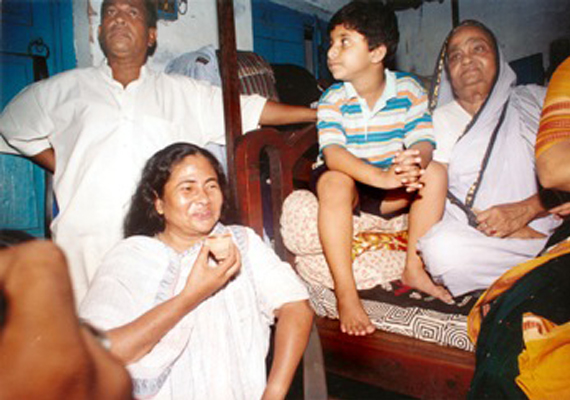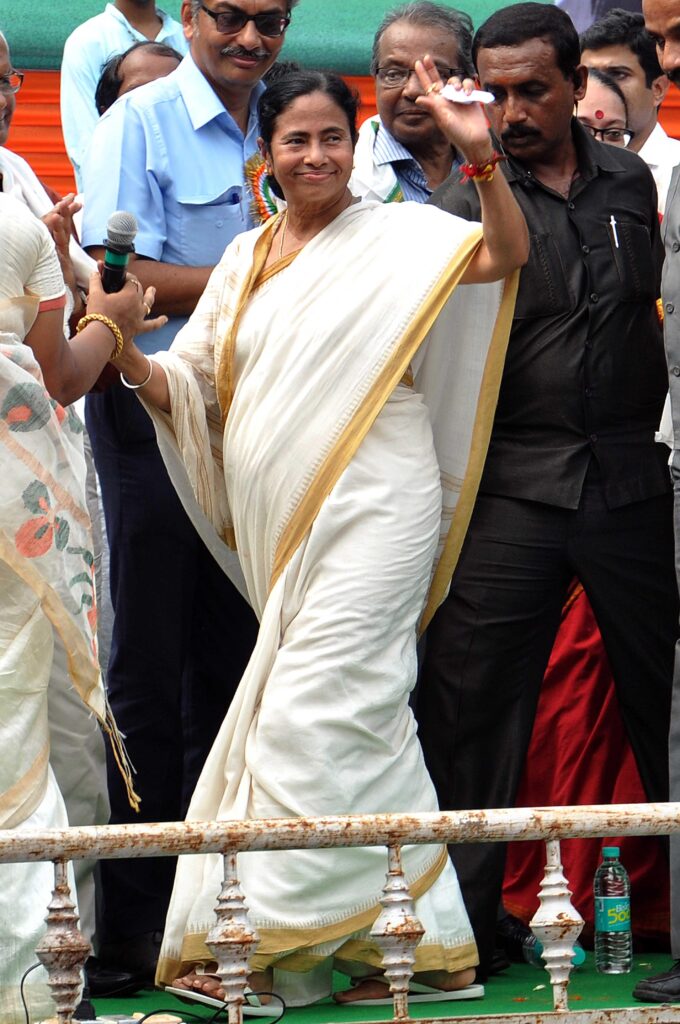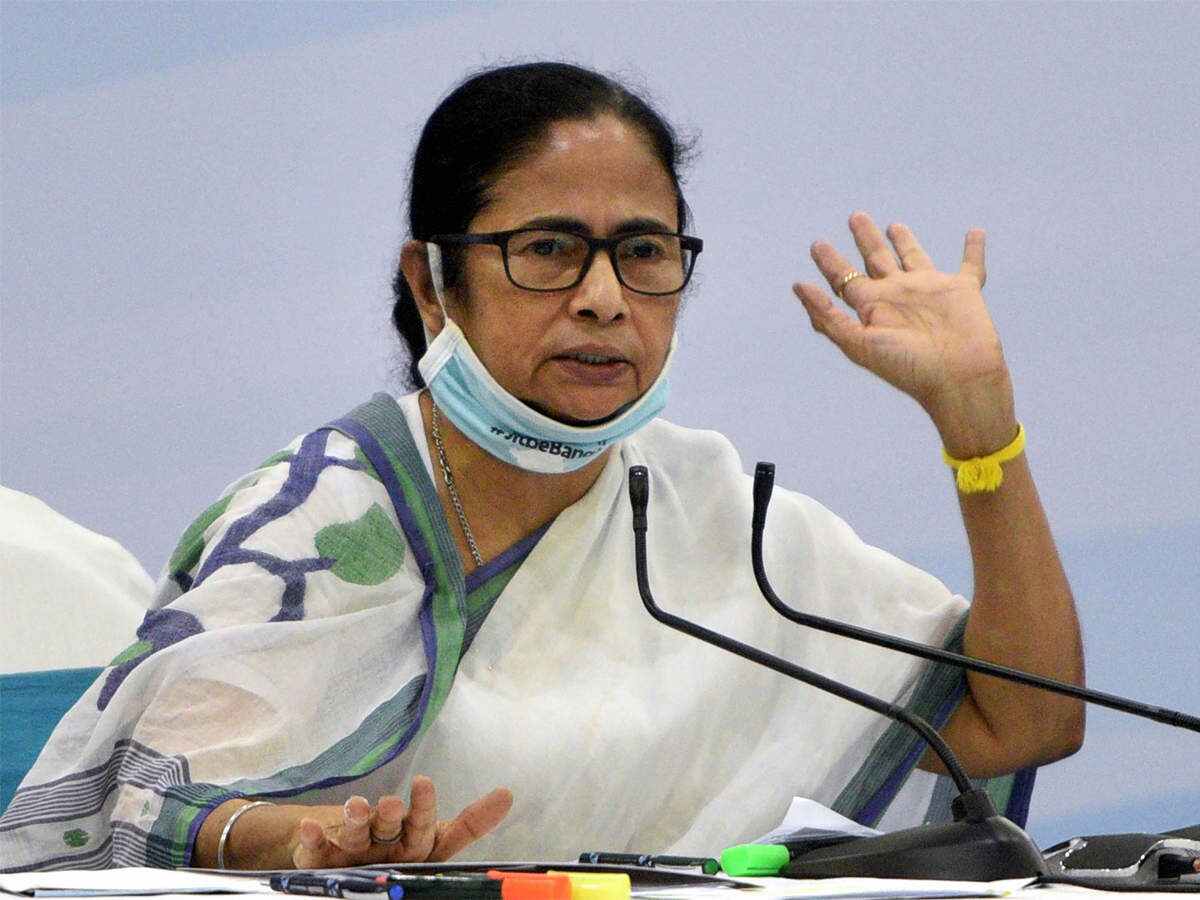Mamata Banerjee Height Weight Bra Size Age Biography Family Wiki Net Worth, Affairs, Marriage & much more. Mamata Banerjee (born 5 January 1955) is an Indian politician who is serving as the ninth and current chief minister of the Indian state of West Bengal since 20 May 2011, the first woman to hold the office. Having served many times as a Union Cabinet Minister, Mamata Banerjee became the Chief Minister of West Bengal for the first time in 2011. She founded the All India Trinamool Congress (AITC or TMC) in 1998 after separating from the Indian National Congress, and became its first chairperson. She is often referred to as ‘Didi’ (meaning elder sister in Bengali).
Banerjee previously served twice as Minister of Railways, the first woman to do so. She is also the first female Minister of Coal, and Minister of Human Resource Development, Youth Affairs and Sports, Women and Child Development in the cabinet of the Indian government. She rose to prominence after opposing the erstwhile land acquisition policies for industrialisation of the Communist-led government in West Bengal for Special Economic Zones at the cost of agriculturalists and farmers at Singur. In 2011, Banerjee pulled off a landslide victory for the AITC alliance in West Bengal, defeating the 34-year-old Communist Party of India (Marxist)-led Left Front government, the world’s longest-serving democratically elected communist-led government, in the process.
She was a member of West Bengal Legislative Assembly from Bhabanipur from 2011 to 2021. She contested the Nandigram assembly seat and lost to the BJP’s Suvendu Adhikari in the 2021 West Bengal Assembly elections, though her party won a large majority of seats. She is the third West Bengal Chief Minister to lose an election from her own constituency, after Prafulla Chandra Sen in 1967 and Buddhadeb Bhattacharjee in 2011. Mamata challenged the result of Nandigram Constituency in Calcutta High Court and the matter is sub judice. She led her party to a massive victory in the 2021 West Bengal assembly polls.
Early life and Education
Banerjee was born in Calcutta (now Kolkata), West Bengal, to a Bengali Hindu Brahmin family. Her parents were Promileswar Banerjee and Gayetri Devi. Banerjee’s father, Promileswar died due to lack of medical treatment, when she was 17. He was a freedom fighter.
In 1970, Banerjee completed the higher secondary board examination from Deshbandhu Sishu Sikshalay. She received a bachelor’s degree in history from Jogamaya Devi College. Later, she earned her master’s degree in Islamic history from the University of Calcutta. This was followed by a degree in education from Shri Shikshayatan College and a law degree from Jogesh Chandra Chaudhuri Law College, Kolkata.
Banerjee became involved with politics when she was only 15. While studying at the Jogamaya Devi College, she established Chhatra Parishad Unions, the student wing of the Congress (I) Party, defeating the All India Democratic Students Organisation affiliated with the Socialist Unity Centre of India (Communist). She continued in the Congress (I) Party in West Bengal, serving in a variety of positions within the party and in other local political organisations.
Personal life and recognitions
Throughout her political life, Banerjee has maintained a publicly austere lifestyle, dressing in simple traditional Bengali clothes and avoiding luxuries.
During an interview in April 2019, Prime minister Narendra Modi claimed that despite their political differences, Banerjee sends her own selected kurtas and sweets to him every year (When Ms. Banerjee was asked about this in an interview, she said “We send all the good things of Bengal not only to him, but also to others belonging to different political parties.” Australian Envoy Barry O’Farrell thanked her for sending sweets on the occasion of Vijayadashami). In September 2019 when Ms. Jashodaben, the wife of PM Modi, was leaving Kolkata, Mamata met her at the Kolkata airport and gifted her a saree.
She identifies herself as a Hindu.
Banerjee is a self-taught painter and a poet. Her 300 paintings were sold for ₹9crore (₹90 million, £990,000 or US$1,350,000).
In 2012, Time magazine named her as one of the 100 Most Influential People in the World. Bloomberg Markets magazine listed her among the 50 most influential people in the world of finance in September 2012. In 2018, she was conferred the Skoch Chief Minister of the Year Award.
Banerjee stepped out into the streets of Kolkata during lockdown, caused by the COVID-19 outbreak, to spread awareness among the common people.
“She has always been a fighter” said Yashwant Sinha while disclosing that Mamata had offered to be a hostage as part of a negotiation strategy during the Kandahar hijacking crisis. “She was ready to make the ultimate sacrifice for the country” Sinha added.
While appealing for maintaining religious harmony, Banerjee has reiterated the fact on numerous occasions that “Religion is personal, but festivals are universal.”
In 2021, Mamata Banerjee was invited to attend World Meeting for Peace in Rome. She was the only Indian invited to attend the event. But in September, the Union Ministry of External Affairs (MEA) denied her permission to attend the peace conference stating that the event was not “commensurate in status for participation by the chief minister of a state”. BJP MP Subramanian Swamy slammed Modi government on Banerjee’s Rome visit cancelation. According to Indian Diplomat K. P. Fabian, the reason cited by MEA was unconvincing. Similarly, in December, Banerjee was denied permission by the MEA to visit Nepal.
TIME magazine published its annual list of ‘The 100 Most Influential People of 2021’ on 15 September 2021. The list includes Mamata Banerjee among others.
She received an honorary doctorate from the Kalinga Institute of Industrial Technology, Bhubaneswar. She was also honoured with a Doctorate of Literature (D.Litt.) degree by Calcutta University.
Mamata Banerjee Age Husband Children Family Biography & More


Public profile and controversies
Saradha scam
Main article: Saradha Group financial scandal
The Saradha Group financial scandal and the Rose Valley financial scandal came to light during her tenure and some of her cabinet ministers were accused of money laundering and have been incarcerated. One of her paintings was also sold to Sudipto Sen (central figure in the Saradha scam) for ₹1.8 crore (equivalent to ₹2.0 crore or US$270,000 in 2020), while 20 more of her pictures were seized from other Saradha Group shareholders. She has been criticised by opposition parties for not taking adequate steps against her own ministers who tried to cover-up their deeds. Sudipto Sen was arrested from Kashmir. The Shyamal Sen Commission, set up by the Chief Minister, was able to return ₹185 crore (equivalent to ₹251 crore or US$33 million in 2020) to the depositors. Leaders from Congress and CPI(M) like Adhir Ranjan Chowdhury, Sujan Chakraborty, Biman Bose were also accused in this scam. Despite Bankshall Court’s order to investigate into this matter, no action has been taken by CBI against any of these leaders (other than TMC leaders) to date.
Rose Valley scam
Main article: Rose Valley financial scandal
The Rose Valley financial scandal was a major financial scam and alleged political scandal in India caused by the collapse of a Ponzi scheme run by Rose Valley Group where multiple MPs from Banerjee’s party were accused of money laundering.
Narada scam
Main article: Narada sting operation
The Narada sting operation was carried out by Mathew Samuel in 2011 for the Indian newsmagazine Tehelka and published on Naradanews.com just before the 2016 West Bengal Assembly elections. The sting targeted high-ranking officials and politicians of Banerjee’s political party All India Trinamool Congress (AITC).
During her tenure she challenged the federal system of India when she ordered the arrest of CBI officials, who arrived in Kolkata to investigate the Saradha Group financial scandal. But CBI’s attempted arrest of Kolkata Police Commissioner was also an attack on federalism.
Allegations of Muslim appeasement
Mamata Banerjee and her government has been accused of “Muslim appeasement” several times by different groups of people including the opposition political parties. But refuting such claims her supporters says “Didi works for everyone, doesn’t discriminate between Hindus and Muslims.” If the allegations of Muslim appeasement were true then the average socio-economic condition of Bengal’s Muslims should have been better than the average socio-economic condition of all Muslims in India. But in reality this is not the case.
Imam Bhatta controversy
Mamata Banerjee has been criticised for starting controversial stipends to imams (Iman Bhatta). The stipends were ruled unconstitutional by Calcutta High Court and ordered the West Bengal government to stop payment of the monthly stipend to thousands of imams and muezzins in the state.
Durga Idol immersion controversy
In October 2016, the West Bengal government banned the Durga Puja festival immersion after 4:00 pm. Durga Puja was to take place on 12 October and Muharram on 13 October. This was seen by a section of the West Bengal population as another example of the “Muslim Appeasement” policy of Banerjee’s government. The Calcutta High Court overturned the decision and called it “a bid to appease minorities”.
Suppressed campus democracy and youth agitations
Mamata Banerjee denied permission for Anti-CAA rallies and suppressed campus democracy in West Bengal. The West Bengal police denied permission to Aishe Ghosh to hold a rally at Durgapur in Bengal’s West Burdwan district saying chief minister Mamata Banerjee was holding a roadshow at the same spot. “A huge crowd had assembled for the chief minister’s rally. Another rally at the same spot would have led to chaos,” an officer from Durgapur police station said.
COVID-19 management
Main article: COVID-19 pandemic in West Bengal
Banerjee and her government was widely criticised of the handling of the COVID-19 pandemic and was accused of concealing facts by the opposition, critics and many doctors.
The opposition accused Mamata of playing “appeasement politics” amid the COVID-19 crisis. On 1 April, Banerjee claimed that the West Bengal Government have already traced 54 people who attended the Tablighi Jamaat religious gathering during the COVID-19 Outbreak, and 44 of them are foreigners. Although according to a report by central security agencies, 232 people had attended Delhi’s Tablighi Jamaat event from West Bengal. Of this, 123 are Indian nationals and 109 are foreigners.
The West Bengal Government has been also criticized for not sending enough samples to the National Institute of Cholera and Enteric Diseases(NICED) for testing. The government later banned use of cellphones in hospitals.
However, Mamata Banerjee blamed BJP’s IT cell for “using fake news to malign West Bengal’s health department”. Many people were arrested for spreading fake news amid lockdown. FIR was lodged against a Bengal BJP MP also for raising “false alarm” over COVID-19 deaths in Bengal.
In popular culture
Baghini, a Bengali film, inspired by Mamata Banerjee’s life, was released on 24 May 2019. It is not a biopic.
Works in literature and other fields
Beside being a politician, she is also a famous poet. Numerous books written by her have been published so far. On 2022, she was given Paschimbanga Akademy Award for ‘Kabita Bitan’ which consists 946 poems.
She is also a self-taught painter. Her paintings are auctioned several times.
She is also a lyricist and her compositions are mostly base on ‘Durga Puja’ and ‘Motherland’. ‘Maa Go Tumi Sarbojanin’ sang by Shreya Ghoshal is one of her most popular song.


[…] More: Mamata Banerjee | Xi […]